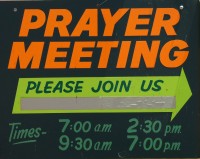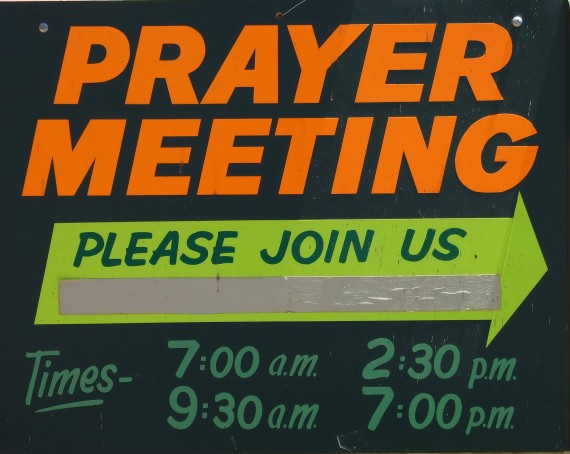 Every year around this time, I read all sorts of posts and articles for why it is sinful for Christians to participate in Halloween.
Every year around this time, I read all sorts of posts and articles for why it is sinful for Christians to participate in Halloween.
So I decided to write a post about why Christians MUST celebrate Halloween.
No, I don’t have any Bible verses to back this up or deep theological ideas to prove it. I just have three reasons Christians should celebrate Halloween.
Christians Are Light in the Darkness
Christians often complain that Halloween is a day of death, darkness, and evil. I won’t argue this. For many people, Halloween is a day to celebrate witches, ghouls, ghosts, goblins, death, decay, murder, and many other such things.
But since when do Christians run away and hide from death and darkness? Doesn’t the Bible call us to be lights in the darkness, and to bring life and healing to those areas which are full of death and decay? Of course it does!
Look, you don’t have to dress up like a vampire to participate in Halloween. And definitely don’t judge and condemn those who do. But I would encourage you to go on out and have a good time. Let your kids get some free candy. Laugh! Have a good time. Enjoy life. Make some memories.
Or, if the kids are grown and gone, give out heaps of free candy to the neighborhood. They will remember you forever.
Which brings me to my second point.
Halloween is an Opportunity for Generosity
Halloween is a great opportunity to show Christian generosity. I still remember the two or three houses in my neighborhood that gave away full candy bars on Halloween. Not the little snack-size ones, but full-size candy bars! I couldn’t believe it then, and I still cannot believe it now.
We often bemoan the fact that we don’t know the families in our neighborhoods better, but Halloween is one night of the year where most of the neighborhood families will be knocking on your door. So make an impression on them! Be generous!
I was talking a guy this past week who said he was going to pass out Gospel tracts to the kids in the neighborhood when they came by his door. This also will make an impression on the families who knock on your door, but not in a good way… I tried to encourage him that if he was going to pass out tracts, he should include a huge handful of candy with each one. Let people remember you for being generous, and they might also read that tract that came with your generosity.
Or better yet, they might want to talk to you when they see you in the park, at the mall, or trimming your hedges.
But there is one last reason for Christians to celebrate Halloween….

Free Candy!
I am a candyaholic, so I had to include this…
But I am actually kind of serious.
For most children, Halloween is about one thing: candy.
If you have kids, they are going to go to school the day after Halloween, and everyone is going to be talking about how much candy they got. When the kids ask your child how much candy he/she got, do you want them to have to say that they didn’t get any candy because their mom and dad believe Halloween is evil?
As I wrote in a different post about a Trunk-or-Treat I attended, if you feel that Halloween is some sort of contest between Jesus and the devil, one sure way to “win” is by giving away lots of candy. On Halloween, candy is how kids keep score. This goes back to the previous two points. The devil loves it when Christians hand out Jesus stickers instead of candy on Halloween.
If you hand out Gospel tracts or “Jesus Loves You” pencils instead of candy on Halloween, you are actually bringing shame to the name of Jesus on this day.
Jesus is not glorified when we are cheapskates and killjoys in His name.
Let kids be kids! And if you are (rightfully) afraid of what they might see or what they might encounter, then go with them! Walk around the neighborhood with them, giving them that sense of parental security and safety that is so important for children to have.
And guess what? If you do this, I bet they will even share some of their free candy with you…




 Many believe that the sin of blasphemy against the Holy Spirit — or the unforgivable sin — occurs when someone attributes the works of the Holy Spirit to the works of the devil. This view is based on
Many believe that the sin of blasphemy against the Holy Spirit — or the unforgivable sin — occurs when someone attributes the works of the Holy Spirit to the works of the devil. This view is based on

 After the church became the official religion of the Roman Empire, the church leaders had time to develop approved theology and doctrine. Among the things that were debated were the ways that the grace of God was distributed to believers. They came up with numerous ways, all of which required the involvement of the priestly class. Very frequently, the priests said special prayers or required people to say special words when undergoing these sacred rituals, so that over time, people began to think that there was actual power in these rituals, so that the way they were done did not matter as much as simply doing them.
After the church became the official religion of the Roman Empire, the church leaders had time to develop approved theology and doctrine. Among the things that were debated were the ways that the grace of God was distributed to believers. They came up with numerous ways, all of which required the involvement of the priestly class. Very frequently, the priests said special prayers or required people to say special words when undergoing these sacred rituals, so that over time, people began to think that there was actual power in these rituals, so that the way they were done did not matter as much as simply doing them.


